SSANU, NASU Reject N50bn Sharing Formula, Demand Equity In Allocation Of Earned Allowances The Joint Action Committee (JAC) of the Senior Staff Association of Nigerian Universities (SSANU) and the Non-Academic Staff Union of Educational and Associated Institutions (NASU) has strongly condemned the allocation formula used for the recent disbursement of ₦50 billion in earned allowances
SSANU, NASU Reject N50bn Sharing Formula, Demand Equity In Allocation Of Earned Allowances

The Joint Action Committee (JAC) of the Senior Staff Association of Nigerian Universities (SSANU) and the Non-Academic Staff Union of Educational and Associated Institutions (NASU) has strongly condemned the allocation formula used for the recent disbursement of ₦50 billion in earned allowances approved by the Federal Government for university-based unions.
In a joint statement released on Sunday, and signed by SSANU President, Muhammed Ibrahim, and NASU President, Peters Adeyemi, the unions described the sharing structure as “grossly unfair”, warning that the move risks triggering fresh industrial unrest across Nigerian universities.
The ₦50 billion allowance, recently released by the Federal Government, was meant to compensate staff for earned entitlements accrued over several years. The funds are to be shared among the four recognized university-based unions: the Academic Staff Union of Universities (ASUU), SSANU, NASU, and the National Association of Academic Technologists (NAAT).
However, JAC expressed outrage over what they view as lopsided disbursement, with a disproportionate share reportedly allocated to ASUU, leaving non-academic staff with a significantly smaller portion.
“This is not a contest of supremacy among unions,” the statement read. “Rather, it is about fairness, recognition, and the equitable treatment of all workers who form the backbone of the Nigerian university system.”
The unions warned that the imbalanced allocation method threatens industrial harmony, stating that it would deepen the longstanding divide between teaching and non-teaching staff in the university system.
Legal Expert Warns Ondo Governor Aiyedatiwa Over Delay In Constituting Full Executive Council
SSANU and NASU used the opportunity to highlight the vital contributions of non-teaching staff in sustaining Nigeria’s higher education system. From administrative operations to technical support, research implementation, and facility maintenance, the unions argued that their members are indispensable to the smooth running of university campuses.
“Non-teaching staff of Nigerian universities are not second-class citizens,” they declared. “They are critical stakeholders who contribute immensely to the day-to-day functionality, administrative efficiency, research excellence, technical operations, and overall development of the Nigerian University system.”
The statement added that excluding or minimizing the roles of non-academic staff in financial allocations is not only demoralizing, but also a violation of equity and justice.
The unions expressed concern that if the Federal Government proceeds with the current sharing formula, it would breed widespread discontent and potentially destabilize the fragile peace currently existing within the university system.
They warned that the situation, if not swiftly addressed, could lead to industrial action, further derailing academic calendars already disrupted by past strikes and administrative challenges.
“A harmonious and productive academic environment can only be achieved when all stakeholders are treated with respect, dignity, equity, and fairness,” the joint statement emphasized.
They called on the Federal Government to immediately review and reverse the existing sharing formula, and to engage in sincere consultations with all university-based unions to agree on a more inclusive and just method of disbursement.
Both SSANU and NASU urged government agencies—particularly the Federal Ministry of Education, the National Universities Commission (NUC), and the National Salaries, Incomes and Wages Commission—to recognize the growing dissatisfaction among non-academic staff and take proactive steps to prevent crisis.
The unions stressed that rather than fostering a hierarchy among university workers, the government must foster collective engagement, where all categories of staff are viewed as partners in the development of higher education.
“Rewarding one group at the expense of another only sows the seeds of division,” they said. “Sustainable development in the education sector requires unity of purpose, and that unity cannot be achieved under a structure of injustice and marginalization.”
The statement by SSANU and NASU adds another layer to the ongoing discourse on compensation, equity, and inclusiveness in Nigeria’s university system. With the memory of past strikes still fresh, stakeholders are now watching closely to see whether the government will respond to the call for a more balanced allocation formula.
For many, this latest controversy is a reflection of a deeper problem—a lack of consistent dialogue and fair negotiation mechanisms between the government and the diverse unions that keep the education sector afloat.
The unions concluded with a final appeal to President Bola Tinubu’s administration to demonstrate a commitment to inclusive governance, urging authorities to treat all university workers with the dignity and fairness they deserve.

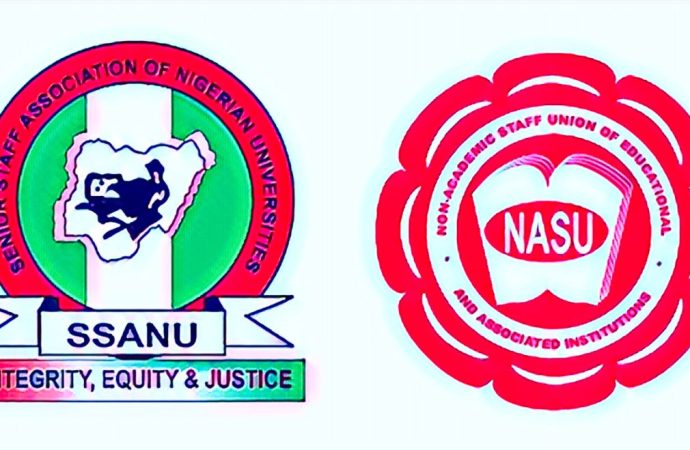

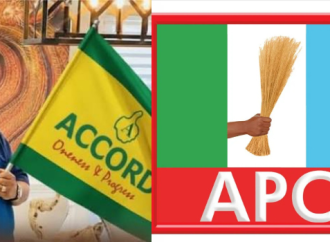

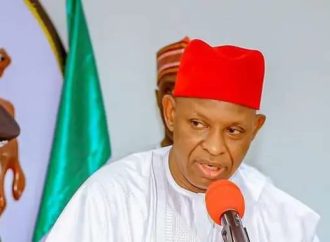

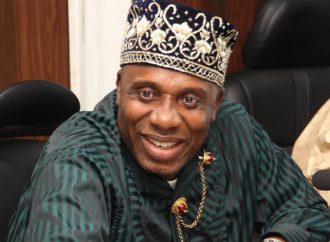





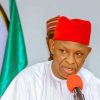







Leave a Comment
Your email address will not be published. Required fields are marked with *